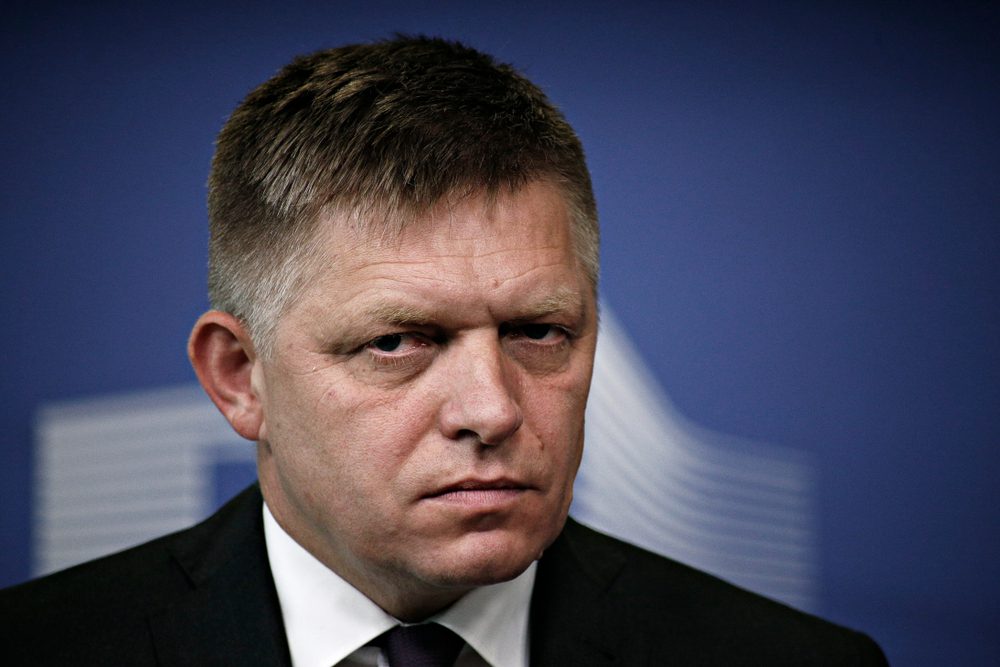
The Slovakian Parliament will hold an extraordinary session today, Monday August 21st, to discuss the latest scandal surrounding the Central European country’s security services. Former Prime Minister Robert Fico, whose party leads opinion polls, has suggested that the Slovak police’s latest actions are a covert attempt to influence the upcoming elections.
Police chief István Hamran announced on Thursday, August 17th, that high-ranking officials in the security community have been charged with forming a criminal group and conspiring to abuse power, among them the current and previous chief of the Slovak Information Service (SIS), and the director of the National Security Authority (NBU).
Two separate cases are being investigated; the most important brings charges against seven individuals who allegedly conspired to obstruct investigations in corruption cases that date to the era of former Prime Minister Robert Fico. The revelations come just a week after Tibor Gašpar, chief of police during the Fico era, was arrested for corruption and links to organised crime. Gašpar is running for a seat in parliament as a candidate of Fico’s social-democratic-populist party, Direction—Social Democracy (Smer), which is currently in opposition.
Elections are to be held on September 30th with Smer leading opinion polls. According to the latest projections the party is set to receive around 20% of the votes. Trust in the government parties has significantly faltered since the last elections in 2020, as three other opposition parties are on course to finish second, third, and fourth: liberal party Progressive Slovakia (17%), social-democratic Hlas, formed by previous members of Smer (13%), and far-right Republika (9%). Forming a new government will be difficult as five other parties are also projected to enter parliament.
Robert Fico, prime minister between 2006-2010 and 2012-18, has criticised the government for sending weapons to Ukraine, and has called for a diplomatic solution to the war launched by Russia last year. By opposing mass migration to Europe and denouncing the meddling of U.S. billionaire George Soros in Slovakia’s internal affairs, Fico has found allies in the conservative political scene, such as Prime Minister Viktor Orbán of Hungary.
Fico called the charges brought against security chiefs a “police coup,” a move that could harm his party before the elections, and called for the extraordinary session of parliament. Since the centre-right-liberal coalition government took power in 2020, a number of senior officials, police officers, judges, prosecutors, politicians, and businessmen have been charged with corruption and other crimes. Fico himself, and his former Interior Minister Robert Kaliňák, were also charged last year with creating a criminal group, but the parties in government couldn’t garner enough votes in parliament to strip Fico of his legal immunity. The opposition leader at that time argued that “today’s Slovak society is not democratic, Slovakia is not a state governed by the rule of law,” but an “American province.”
Just like last year, Hungarian officials sided with Fico this week as well. Minister of Foreign Affairs Péter Szijjártó said that the prosecution of politicians who oppose the “international liberal mainstream and courageously stand up for national interests” are taking place all around the world, including Slovakia. Tamás Menczer, the ministry’s state secretary suggested that the timing of Tibor Gašpar’s arrest may deliberately have coincided with the election campaign.
In an open letter, a total of eight Slovak Members of the European Parliament rejected Szijjártó’s remarks, stating that “the fight against corruption is important at all levels of society and that the law enforcement authorities have an indispensable role to play.”
Meanwhile, the president of Slovakia, Zuzana Čaputová, denounced Robert Fico’s accusations on Friday, saying that the police are not carrying out a coup. Michal Šimečka, leader of Progressive Slovakia—Zuzana Čaputová’s party before becoming president—concurred, stating that more and more evidence is piling up about the “corruption machine” that had functioned under Fico.
